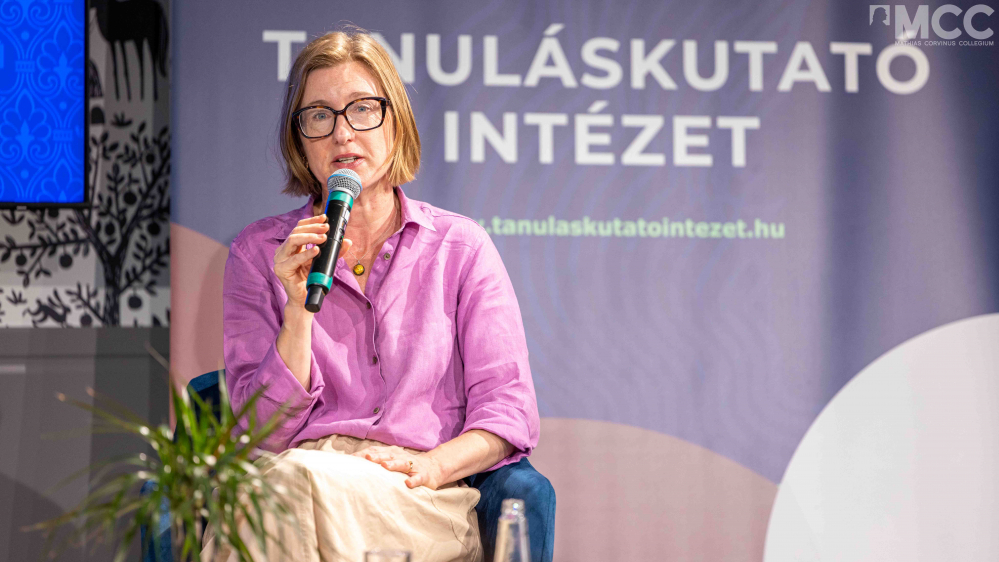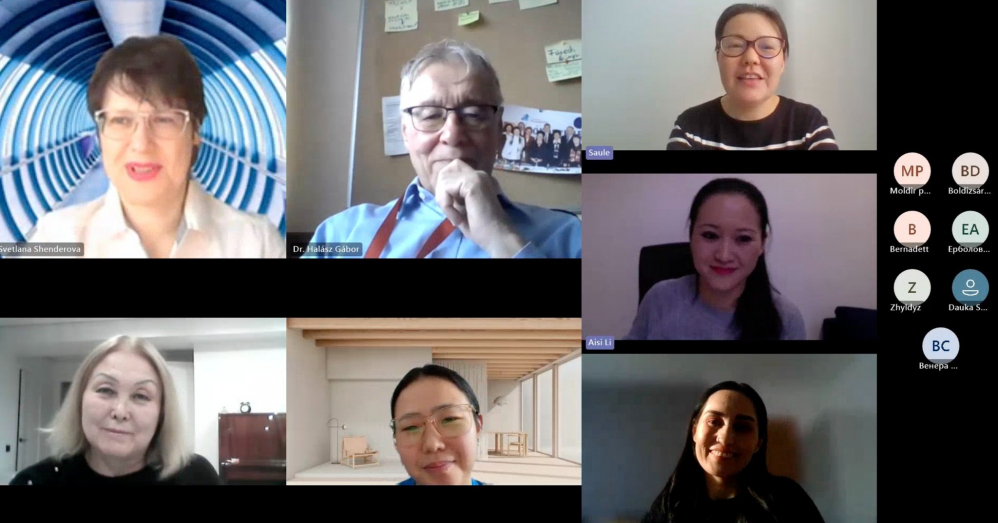The Learning Institute continued the "Reclaiming Classical Education" online seminar series with an engaging lecture by Dr. Joanna Williams titled "What Are Schools For?" In her thought-provoking talk, Dr. Williams explored the fundamental purpose of education, examining the role of schools in shaping knowledge, culture, and societal values.
Dr. Joanna Williams began her career as an English teacher in secondary schools before joining the University of Kent as a lecturer in 2007. Until 2016, she served as director of Kent’s Centre for the Study of Higher Education, after which she became head of education and culture at Policy Exchange. Later, she founded her own think tank, Cieo, which focuses on issues related to democracy, education, and citizenship. She has authored several books, including How Woke Won (2022), Women vs. Feminism (2017), and Academic Freedom in an Age of Conformity (2016). Her articles frequently appear in The Times, The Telegraph, and The Spectator.
At the beginning of her lecture, Dr. Williams highlighted that in recent decades, a new form of political division has emerged. She pointed out that in many countries today, educational attainment rather than social class is the primary factor influencing voting preferences. According to her, the longer someone stays in education, the more likely they are to support progressive ideas and globalist, technocratic parties, while those with lower educational qualifications tend to prefer populist and nationalist parties.
She cited the United Kingdom’s 2016 referendum on EU membership as an example, where nearly three-quarters of university graduates voted to remain, while the majority of those with lower educational qualifications supported leaving. She noted a similar trend in the United States: post-2024 presidential election surveys indicated that two-thirds of adults without a college degree voted for Donald Trump, whereas most university graduates supported Kamala Harris. Likewise, Australia’s 2023 Indigenous Voice referendum also reflected this divide.
Dr. Williams discussed how some scholars argue that genetic factors influencing intelligence determine an individual’s political views, though she considers this aspect debatable. She emphasized that while left-wing ideas change rapidly, the human genome remains constant. She gave the example that while defending free speech was once considered a liberal position, today, some activists perceive it as authoritarian thinking that could harm others’ sensitivities.
A key question, according to the speaker, is what constitutes educational success today and whether the qualifications granted by institutions truly measure knowledge. In her view, schooling plays not only a crucial role at an individual level but also influences social and political processes.
In the second half of her lecture, Joanna Williams explored the relationship between education and political ideologies. She stressed that when schools educate children about relationships, nutrition, environmental protection, or gender identity, they do not merely impart knowledge but also convey values tied to specific behavioral norms.
She noted that middle-class students, whose family values align with those promoted by their schools, find it easier to adapt to the school environment. Teachers reinforce their "habits" and "beliefs," fostering academic success. She also pointed out that students who can provide the "correct" answers to political questions—such as those regarding immigration policies, gender identity recognition, or the importance of environmental protection—find it easier to navigate the education system successfully.
In contrast, children from working-class backgrounds often struggle to fit into the school environment. For them, school is not just a site of socialization but also a form of "resocialization," distancing them from the values of their own communities. According to Dr. Williams, if schools fail to pass on the legacy of the past and intellectual traditions, they place students into a sort of "Year Zero" approach, where education becomes a tool for shaping a new political worldview.
Joanna Williams emphasized that education influenced by political goals does not foster critical thinking but rather promotes conformity. Students are not expected to question theories about gender identity or the necessity of a globalist perspective; instead, they are expected to accept these values. The education system rewards those who successfully adapt to these ideologies.
According to her, educational qualifications today have taken on a different meaning due to these phenomena. They no longer simply reflect academic achievement or intelligence but also indicate how well an individual has internalized so-called "woke" values—or at least adapted to them. Consequently, left-wing thinking is not determined by genetic intelligence but by the impact of the education system.
Dr. Joanna Williams concluded her thoughts by noting that while schools and universities strive to integrate woke ideology into education, young people do not always adopt these ideas uncritically. In some social groups, significant resistance has emerged against the progressive values of the elite. Recent elections and public opinion surveys suggest that Generation Z is politically diverging from older voters and, in many cases, embracing more conservative views. This indicates that the debate over education and politics will continue.



